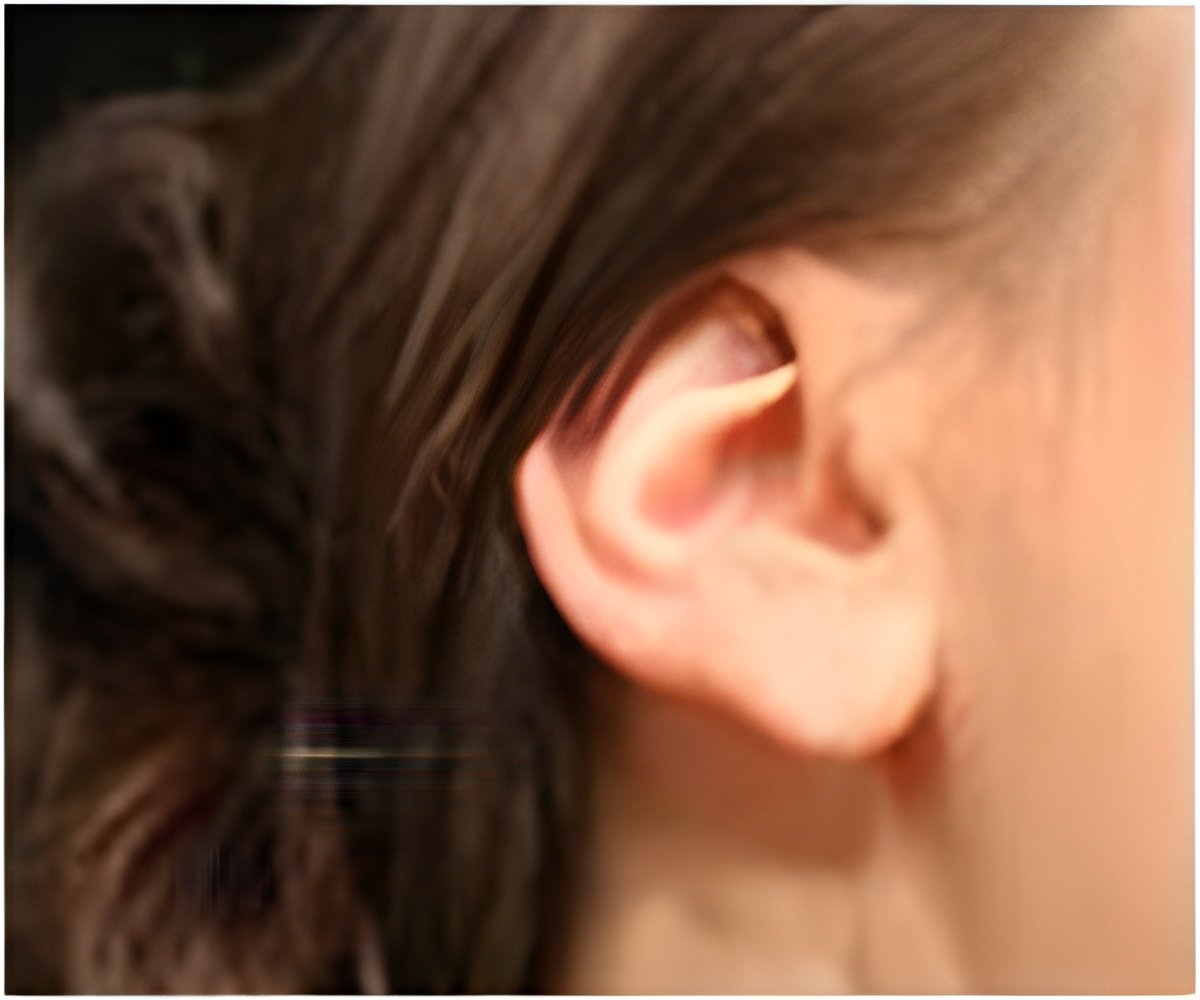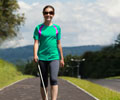This week, September 24th- 30th is celebrated worldwide as the Deaf Awareness Week.

Helen Keller, who had blazed a trail of sorts despite grave disabilities, had said 'I am just as deaf as I am blind. The problems of deafness are deeper and more complex, if not more important than those of blindness. Deafness is a much worse misfortune. For it means the loss of the most vital stimulus-- the sound of the voice that brings language, sets thoughts astir, and keeps us in the intellectual company of man.'
People like Beethoven and Keller are truly God's Gifts to mankind even though they were not the chosen recipients of God's gifts – the gift of sight and hearing!
Deaf Awareness Week 2007
This week, September 24th- 30th is celebrated worldwide as the Deaf Awareness Week. This is an initiative by The World Federation of the Deaf, which is an international organization that combines the initiative of 120 different national associations working for the cause of deaf people. They work in tandem with the United Nations and during this week, seminars and awareness programmes are initiated to iron out some of the crucial problems faced by the deaf.
The ear is a marvelous system comprising many intricate parts connected by zillions of nerve cells. If there is a defect in the components of the ear or there is damage to any of these parts, it could lead to malfunction of the hearing system.
People over the age of 60 sometimes complain of a gradual dip in their hearing. This is called age-related hearing loss. Deafness can also be due to the side-effect of certain medications or can also arise due to an injury to the auditory mechanism.
Congenital Hearing Loss
In many cases, hearing loss is evident at the time of birth. This is called congenital hearing loss. There are several factors behind congenital hearing loss and genetics is known to play an important role. If one or both parents suffer hearing impairment, there is a likelihood of the child inheriting the condition. Also, if there is a family history of hearing impairment, then the children could be genetically predisposed to hearing problems during their life.
Infections in the prenatal or postnatal periods influence hearing. Some of the diseases which cause hearing problems are jaundice, rubella, and chicken pox. The mother’s health during pregnancy influences the heath of the child in many ways, likewise in the case of hearing too.
• Diabetes in the expectant mother can be a cause for concern and could impact hearing. Rh incompatibility is a risky condition and can contribute to hearing impairment.
• During birth, if the baby does not get sufficient oxygen, it could lead to hearing impairment in the new born.
• Premature birth could also lead to the condition.
• In certain cases, the hearing system is malformed and this contributes to hearing loss.
Acquired Hearing Loss
There are many factors behind hearing loss which may manifest at any stage in life. These could be reversible or even permanent. Often, an infection in the ear is behind the hearing loss. Certain bacterial or viral infections like, mumps, chicken pox, syphilis, meningitis could leave its victims with some form of hearing impairment.
Medications sometimes leave a bad side effect, promoting hearing loss which in some cases can be life-long. Aspirin containing medicines, some antibiotics like aminoglycosides - Gentmicin, diuretics, anti-inflammatory drugs are suspect and one needs to be cautious about its use.
Any injury causing damage to the hearing mechanism is another contributory factor to acquired hearing impairment. Some other causes include:
• Constant exposure to noisy environments causes progressive hearing impairment.
• As people catch up with age, especially after the age of 60, people get hard of hearing, medically termed as ‘Presbycusis’.
• Tumor in the acoustic nerve also impairs hearing. Fortunately, this is a rare condition.
Sensorineural Hearing Loss
This category of hearing loss is permanent. This shows up as problems in the inner ear, mainly involving the nerve cells, which could be a birth defect or acquired at any age. The sensorineural hearing loss is irreversible as medication or surgery cannot make much impact. Hearing devices and implants along with training could bring some relief to such patients.
Conductive Hearing Loss
Middle ear infection is the most prominent cause of conductive hearing loss. This is remedied by medicines and/or surgical intervention. Accumulation of wax in the ear can cause interim loss of hearing. If certain parts in the middle ear or external ear are improperly formed, it can also lead to conductive hearing loss.
Can Hearing Loss Be Prevented?
One needs to be aware about hearing impairment and its causes to avert it. It is important to:-
• Treat middle ear infections without delay.
• Be aware of the medicines prescribed. If they are ‘ototoxic’ drugs, they could cause hearing impairment.
• Wear ear defenders or earmuffs before exposure to noisy environments. This is especially important if one is exposed to constant noise; for example working in factories, airport runway, and such other places where noise levels are high.
• Family history of hearing impairment demands that parents be alert and react in time especially if the child does not portray normal response to sound or if the speech is delayed. Early screening is imperative to detecting any abnormality. Likewise, adults should undergo audiometric evaluation in the face of any hearing difficulty.
Technology to the Aid
The severely deaf are today aided by way of cochlear implants – which is a tiny electronic instrument surgically positioned behind the ear under the skin. While the implant does not enable normal hearing, it helps the victim comprehend sound, in order to suitably respond to it. Cochlear implants are designed to compensate the function of the damaged part in the inner ear. The sound waves are electronically transmitted to the brain, akin to the processing of sound by a normal human hearing mechanism.
It is estimated that more than 25000 people in the world have already received cochlear implants. They have indeed brought relief to many severely deaf children and adults. Further, children who received cochlear implants between the ages of 2 and 6 were able to pick up the nuances of speech and sound much better and faster with the help of post implant therapy. It was observed that they blended well into their activities like other normal children.
External Hearing aids which are of several types have been present for a long time. Their mechanism differs from cochlear implants, hearing aids amplify sound.
'Blindness separates us from things but deafness separates us from people.'- Helen Keller
It is evident that despite efforts, there still exist impediments to making the hearing impaired completely self-reliant. Inadequate schooling facilities, socio-economic problems, unequal opportunities, make it difficult for these people to overcome their disability and realize their full potential.
Discriminatory treatment cause much pain and difficulty to the deaf and their families who get bogged down with the problem. They are unable to make use of the resources available to help their loved ones cope. Children from hearing schools are gripped with fear and anxiety when they pass out of this protected environment. Most feel alienated and are ridden with psychological problems.
Equal opportunities must be provided to these differently-abled people. Deaf-friendly television programmes still remain a distant dream –Does it mean that they do not crave for entertainment like normal people do?
Undoubtedly, this calls for sensitivity to their needs, in order to make changes in their immediate surroundings, giving them a chance to blend with their environment. In place of a ‘deafening silence’, what we need is a ‘loud awakening’ to the needs of these special people, for whom life can be ‘sound’ even without the ability to hear normally- provided society accepts them whole-heartedly!
Source-Medindia







